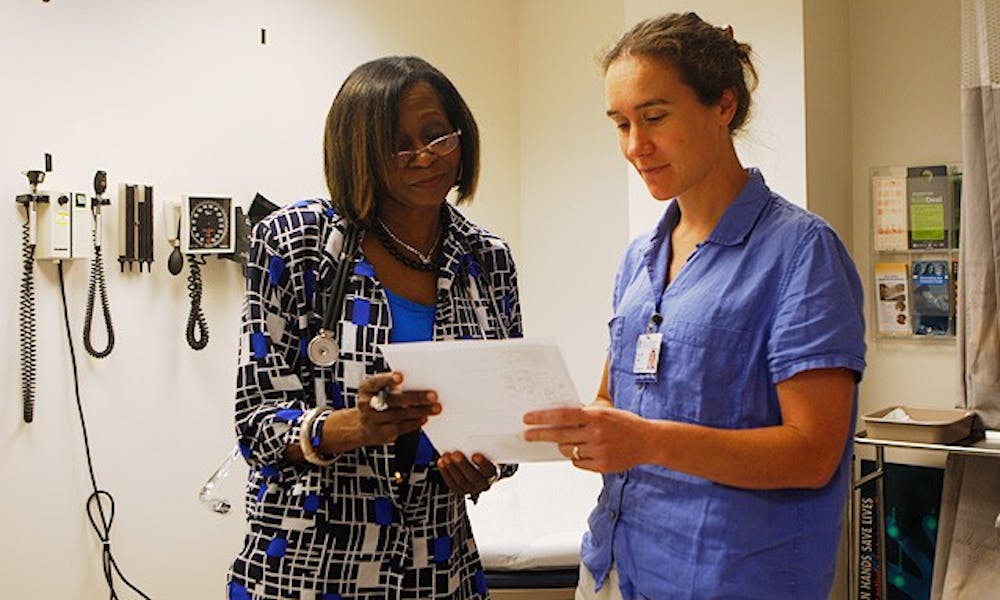Not all doctoring is created equal.
A recent Duke study found that on average, a primary care doctor’s lifetime earnings come to about half of those of a specialist.
“There’s a huge economic advantage to choosing a specialty career over a primary care career,” said Dr. Kevin Schulman, professor of medicine and business administration, and one of the authors of the study. In addition to the wealth gap, Schulman added that primary care doctors also tend to have less attractive lifestyles than specialists do.
The study, which considered medical school debt, earning potential and the age at which a physician begins earning an income, raises several questions—especially at a time when, as Schulman noted, the United States is facing a severe shortage of primary care physicians. The American Academy of Family Physicians has predicted that by 2020, the United States will face a shortfall of 40,000 family physicians.
Recent health care reform legislation aims to encourage the primary care career path by provisioning Medicare bonuses for primary care physicians and financially supporting medical students who aspire to work in the field.
Another possible measure is to encourage medical schools—such as the Duke School of Medicine—to help “funnel” students into primary care after graduation.
The Duke School of Medicine—ranked sixth in research medical schools last month by U.S. News and World Report—placed 42nd in primary care, based on its percentage of graduates set to pursue such careers.
“There are other medical schools trying to send people into primary care careers,” Schulman said. “[But] there’s no question that we’re a research medical school. We’re the only medical school in the country that has a... third-year research requirement.”
According to Schulman, Duke is tailored to academic and research-related careers.
“I think what you’ll find is... we all aspire to be experts at something,” said Drew Henderson, a fourth-year medical school student. “Duke doesn’t have a primary care mission—it turns out specialized and sub-specialized [physicians].”
Henderson entered Duke seriously considering primary care, but said he now favors orthopedic surgery. He added that the field inspired him, and his choice was not financially motivated.
Fourth-year student Ellen Perkins, however, does wish to pursue a primary care path, working in family medicine in an under-served community. She acknowledged that few students share her ambitions, but economic reasons are not the only deterrents for her peers.
“In some ways [general practice is] a less prestigious field,” Perkins said. “It’s like a fall-back option of a medical career.... [People] were very dismissive of primary care. They would say, ‘You can do better than that,’ [and], ‘Don’t sacrifice yourself in that really boring field.’”
Dr. Barbara Sheline, assistant dean for primary care, practices community medicine herself. But she agrees with Henderson that Duke has never marketed itself as an institution for training primary doctors.
“There is prestige in medicine through research,” Sheline said. Additionally—unlike state-funded schools— private medical schools like Duke have historically had to compete with one another for funding, giving research greater importance.
This Fall, the School of Medicine will implement a program that funds experience in primary care for eight selected students each year. These “experiences” will include following a panel of patients for nine months so students can understand the role of a health care provider from a patient’s perspective, Sheline said.
In spite of such efforts and the nation-wide shortage, Schulman pointed out that students cannot be forced into primary care.
“Our students get the pick of the litter and they’re making what seems to be a rational choice,” Schulman said.
Get The Chronicle straight to your inbox
Signup for our weekly newsletter. Cancel at any time.

